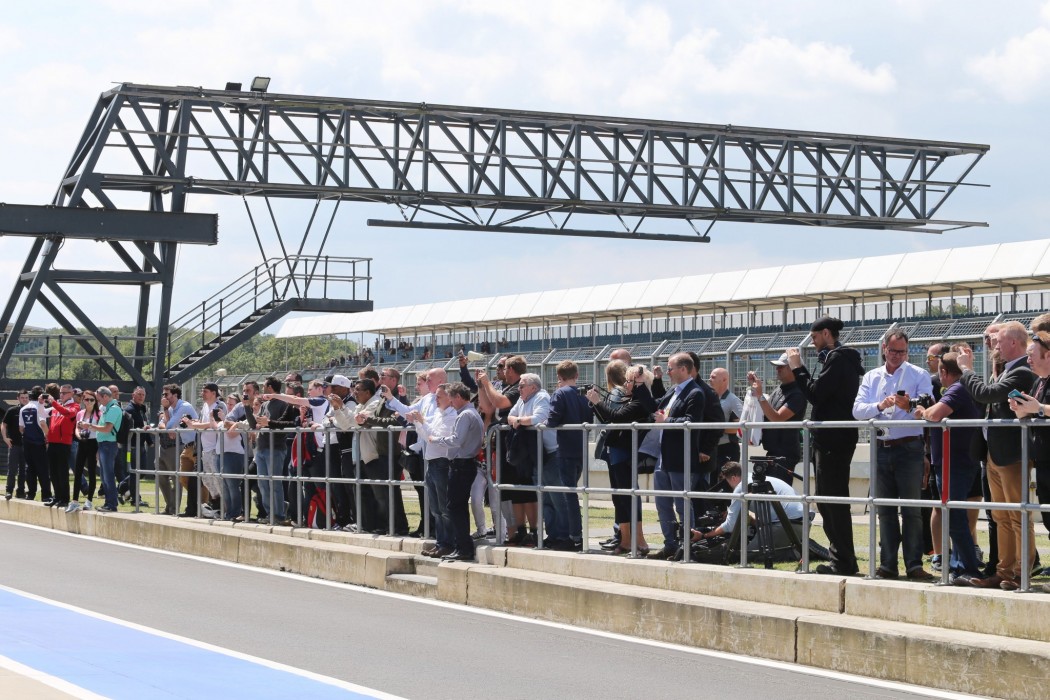Click here to subscribe to our print edition!
According to recent research, the prices of the cheapest tickets for the British Grand Prix are projected to double over the 17 years of the new deal. It would see fans paying £249 just for admission to the circuit without a seat (see box). As ever, in F1, all you have to do is follow the money to find out the reason for this.
Under the new deal, which guarantees the race on F1’s calendar until 2026, Silverstone agreed to pay an estimated £12m annually, with the fee reportedly escalating by 5 per cent per year rather than 10 per cent as is common with F1 race promotion contracts. It is a good deal for Silverstone, but fans will still catch the brunt of it because F1 circuits have to cover the cost of the race hosting fee from ticket sales alone. FOA takes all revenue from trackside advertising and corporate hospitality, leading circuits to struggle to break even. It explains why Silverstone has lost as often as it has made a profit in the past four years.
When the new deal was signed, the media started to speculate that ticket prices would have to rise to cover the fee, but there was no suggestion of just how big an increase there would be. Until now.
The Formula Money report contains all the figures that matter in the F1 business. This makes it the perfect reference tool for companies and individuals researching data such as Formula 1 sponsorship values, F1 race budgets, F1 team finances and much more.
According to the research by F1’s industry monitor Formula Money, the cheapest tickets to the British GP will rise 22.5 per cent to just over £150 by 2014 – five years into Silverstone’s new contract. Ten years into the contract, the cheapest seats are projected to cost 50 per cent more than they do now, and by 2026 the research shows that their price will have doubled to £249. By then, the price of the most expensive seats is expected to have increased by £142 to £530, and the average ticket will cost £425. It seems to be a tough pill for Silverstone to swallow.
A Silverstone spokesman claimed that the projections “bear no resemblance to the facts or Silverstone’s plans for the future” and “any increase in ticket prices would be in line with the annual rate of inflation or rises in VAT.” However, since Silverstone’s spokesman did not bother to ask how the projections were calculated, it isn’t surprising that its response is flawed.
To make its projections, Formula Money took the highest and lowest ticket prices from the British GP over the past four years and worked out the average amount by which they had been increasing. This percentage increase was then halved and applied to the current highest, lowest and median ticket prices and projected forward for 17 years. Formula Money halved the percentage increase since the race hosting fee will increase by half the amount by which it has been rising over the past four years. The hosting fee is Silverstone’s biggest cost; its revenues must increase to cover it.
So, in a nutshell, not only were Formula Money’s projections based on the rate of inflation and VAT in force, but they were also extremely generous towards Silverstone. It seems unlikely that over the next 17 years, the ticket prices for the British GP will only rise by 50 per cent of the rate by which they have been increasing over the past four years. However, the data could not justify any increase beyond this rate. Crucially, if it weren’t for the new deal, the fans would be paying an even higher price.
The research shows that if Silverstone’s fee were increasing by 10 per cent annually, the average ticket price would be £692 by 2026, with the cheapest rising nearly four-fold to £485 and the most expensive being £721. Accordingly, the fans will make a hypothetical saving, and so will Silverstone itself.
The lower escalation amount will lead to the circuit paying around £310m to host F1 for the next 17 years – £176.5m less than the total, which would be due if the fee was rising by 10 per cent. Despite the looming hike in ticket prices, the £12m fee to host the British GP is one of the lowest in the sport. Only Monaco and Monza pay less, and the average hosting fee is £17m, with Malaysia, believed to be the biggest-spending race, paying more than double Silverstone’s amount.
The big question is whether Silverstone has bitten off more than it can chew. After all, with increasing ticket prices, the crowds are likely to fall, leading to more years of losses with little support to fall back on. Although the British GP attracted the biggest crowds of any F1 race last year, with 120,000 spectators turning up on Sunday, it is the only calendar event with no government support.
Silverstone’s sole silver lining is that by 2026 one imagines that F1 will no longer be run by current boss Bernie Ecclestone and its new chief executive will presumably put Britain on the same status as Monza and Monaco, which pay next to nothing to host their races. Ironically for a circuit which hosted the first round of the world championship in 1950, Silverstone may have to scrape through until 2026 to secure its status in F1 for good truly.






Related Articles